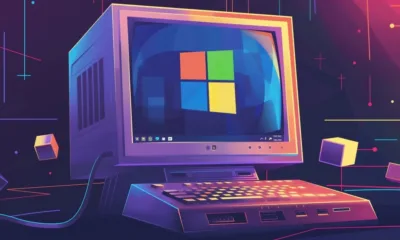Business
The biggest challenges of having multiple payment gateways

While the multitude of payment systems allows merchants to expand their audience, it also poses several challenges for businesses:
- ‘Distributed’ management – the multitude of payment gateways creates a whole range of suppliers, contracts and interactions to deal with. It takes an entire team of managers to handle the amount of workload.
- Failover logistics – when one of the gateways fails, the transaction must be redirected to another gateway. So there is a need to implement the failover logistics to continue the payments.
- Data fragmentation – the data comes from different sources, in different formats and standards, which takes more time to consolidate everything.
- Multiple gateway integrations – Different APIs require specific coding per piece, which becomes a burden for developers.
- Fraudulent risks – companies become dependent on providers and their compliance with security requirements.
Online payment gateways allow companies to enter the global market and compete for foreign customers, but the multitude of providers puts pressure on the management and developer team, creating demand for a more unifying business payment solution: the payment orchestration platforms.
What is a payment orchestration platform?
A Payment Orchestration Platform (POP) is a single source of truth and an integrated payment system that collects, aggregates and makes payment data available through a single platform. payment dashboard. In other words, the payment orchestration platform is like a control panel that instantly enables multiple online payment management. The features include:
- User and merchant account management.
- Payment fraud detection services.
- Initiation, validation, routing and transaction processing
- Payment reconciliation, invoicing, settlement, disbursement and reporting.
The platform is a useful tool for any cross-border e-commerce or online service as they can benefit from a unified API from a payment orchestration platform, reducing the complexity of multiple integrations.
Payment orchestration platforms encompass all possible forms of ‘financial interaction’ in commerce. Take Corefy, one of the leading orchestration platforms; they offer solutions for e-commerce, forex, iGaming, gambling, ISO/MSP, B2B SaaS, Crypto, PSP, dating and adult, marketplace and financial institutions.
No matter the business type, the orchestration platform keeps you covered.
Benefits of payment orchestration platforms
1. Scalability potential
Using payment orchestration, companies can expand their performance network and attract new markets and audiences.
The orchestration platform allows merchants to manage region-specific regulatory compliance, purchase local payment methods, and simplify payment processing. New payment options can be launched within a short period of time, accelerating time-to-market.
2. Dynamic routing
The platform automatically selects the payment route depending on the customer’s payment options, transaction fees, gateway failovers, processing speed, etc.
Payment orchestration provides greater control over transactions and reduces downtime and failover rates.
3. Improved shopping experience
Customers appreciate the smoothness of the shopping journey; However, if there are problems with the checkout procedure, more than 50% of customers are likely to abandon the shopping cart, causing financial loss instead of profit.
The orchestration platforms provide shoppers with various payment gateway solutions, making the shopping experience easy all the way to checkout.
4. Lower maintenance costs
Taken individually, conventional payment systems are affordable and fairly cheap to maintain. But in the long run, with the addition of each new system, the costs become much higher and exceed all possible limits.
The orchestration system provides an up-to-date and secure infrastructure, smart rerouting, automated reporting and unified management through a single platform.
5. Enhanced security and safety
Payment orchestrators improve transaction security and fraud monitoring according to local and international regulations. They include multi-factor authentication, credit card data tokenization, potential risk detection, risk management tools, etc.
Payment orchestration platform implementation guide
Implementing an orchestration system is a complex approach, as there are many aspects to take into account:
1. Business Requirements
As with any software, unified payment management software requires a clear vision and requirements from the company. It is important to outline the most important aspects: payment methods to be accepted, regions and countries to be served, currencies to be accepted, expansion needs, etc.
2. The platform
When choosing the payment management software make sure it meets the basic requirements – a wide choice of payment gateway solutions, integration with processors and acquirers, ability to integrate new payment gateways, split payments and refunds, ability to handle complex payment flows, etc.
3. Reliability of gateways and banks
When selecting the gateways and banks, consider their cost, security and reliability. It is worth integrating with multiple gateways and banks to ensure a fast and secure payment process in the event of an unexpected outage with one of the providers.
4. Security and Compliance
Payment security is critical to overall business performance. The platform must comply with the latest security standards and upgrades as well as local regulations for business operation.
5. Multi-channel support
Commercial presence typically includes various forms of B2C interaction: mobile apps, physical stores, e-stores and social media sales. It is important to ensure that the platform provides cross-channel payment management support to introduce consistent performance across all commercial points of presence and thus improve customer experiences.
Resume
Using multiple payment gateways is an important part in the commercial world; But the more gateways are used, the harder they are to manage… unless you implement a payment orchestration platform.
Payment orchestration platforms introduce a simplified payment management mode:
- Centralized platforms for multiple gateways
- Fast and secure payment procedure
- Timely reports and automated data consolidation
- Smart transaction routing and rerouting
- Unlimited scalability options
- Multi-channel management
- Security compliance, and more.
Payment orchestration is a new form of efficient payment management. Don’t hesitate to introduce it in your company.











